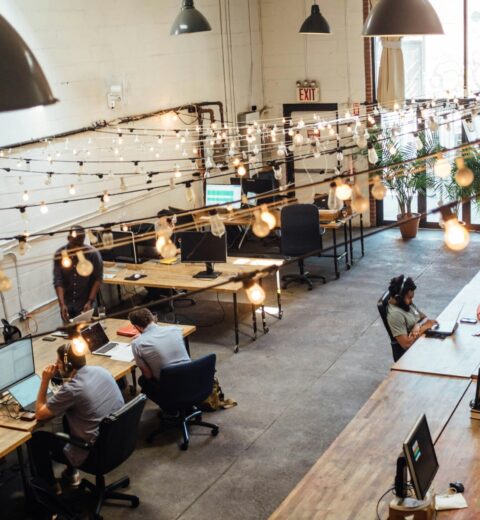Let’s begin with the key question: why would a city, or even a tiny village, want to draw in digital nomads? To answer that, we need to grasp the concept and what’s driving it.
Who exactly are digital nomads?
In essence, they’re individuals who lead a lifestyle of constant travel, staying in different places for varying periods while working remotely. It’s a modern form of nomadism, though typically not a lifelong pursuit—more of a multi-year adventure packed with travel and experiences. And as the term suggests, it’s “digital” because they’re not just exploring, they’re working as they move.
What do they need to make this work? Essentially, just two things: a reliable internet connection and a laptop. But, of course, the experience is significantly enhanced if they can work in an inspiring environment with optimal conditions, surrounded by people with similar mindsets. That’s where sleek, well-designed coworking spaces come in to meet this demand.

How digital nomads boost the local economy
Digital nomads are an ideal target for most destinations with good infrastructure and tourism potential. They’re educated, often multilingual, and might stay in one place for several months. While there, they pay for accommodation, dine out, enjoy local activities, and support local businesses. They’re also keen to experience the local culture, try local services, and purchase artisanal and culinary products.
Digital nomads seek out like-minded communities, are well-educated, and often enjoy sharing their expertise, sometimes even volunteering (for example, at local schools).
This is exactly why more and more cities want to attract them. And all it takes is a good coworking space with reliable internet, cozy and stylish surroundings, comfortable seating, great coffee, and friendly people.
Let’s take a look at some great examples of destinations that excel in this.
The Trailblazer: Ponta Do Sol, Madeira’s Hub for Startups and Digital Nomads
Ponta Do Sol, located on the Madeira Islands, was the first place to be officially designated as a digital nomad hub. Led by Gonzalo Hall in collaboration with the local government, the project created an ideal environment for digital nomads. Since then, many other cities have followed Madeira’s lead, and NomadX has been transforming more locations using this successful model.
Busan, South Korea: free coworking for digital nomads
Next up is Busan, South Korea, a great example of how a city can use initiatives to rejuvenate its population. First-hand insights come from Timi Pintye, a location-independent entrepreneur, digital nomad, and Muay Thai fighter, who regularly works from coworking spaces around the world. Busan offers free coworking spaces, highlighting its commitment to attracting a younger, more dynamic crowd.
Due to Busan's aging population, many young people have been relocating to Seoul. In response, the city has created several free coworking spaces to make Busan more attractive to digital nomads. One such space is the
Almost unbelievably, a brand new state-of-the-art coworking office has been created, the Busan Workation Center, which offers a modern work environment at no cost, perfect for remote workers looking to keep their expenses low. The goal is to integrate young people and digital nomads into the city's fabric, helping to boost the local economy and community life.
Registration is quite complicated, but the local digital nomad organisation, the Digital Nomads Korea is happy to help.

The big move from a tiny Italian town: work and live in Pontremoli!
Pontremoli, a charming Tuscan town with a population of around 7,000, is making a bold move. It’s primarily targeting Italian remote workers living in big cities who are looking for a quieter, more meaningful lifestyle. Alongside creating a coworking space for them, the town encourages newcomers to embrace the local way of life—slow down, spend time outdoors, take long lunch and coffee breaks, and explore the area’s attractions. They’ve even launched a website for the initiative, called Start Working Pontremoli, , where more details about this opportunity can be found.
Cape Verde: Work in Paradise!
Africa, too, has quickly recognized the positive impact of remote workers and digital nomads. While Cabo Verde, an island nation in the Cape Verde archipelago, is already a popular tourist destination, mass tourism isn’t always beneficial to its stunning natural environment. In response, the government has realized the value of attracting a different kind of traveler. And what could be more enticing for digital nomads than coworking spaces set in a breathtaking environment? Picture all shades of green, beachfront settings, exotic locations, and a rich cultural backdrop—an irresistible offer for those seeking both productivity and paradise.
The digital nomad lifestyle and coworking spaces are more than just a way to work—they embody a spirit of community, creativity, and curiosity. The examples above show how the right infrastructure can draw in this unique group of travelers and professionals, contributing both economic and cultural value.In these cities, coworking spaces have the potential to be the engines of a future driven by collaboration, community, and knowledge-sharing.




